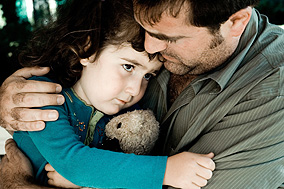Children: Feeling Safe At Home
 Safety is essential for the survival of children and adults alike. For children, the feeling of physical, social and emotional safety is necessary for their healthy development. Here are several tips on maintaining a safe home where your child’s needs are met:
Safety is essential for the survival of children and adults alike. For children, the feeling of physical, social and emotional safety is necessary for their healthy development. Here are several tips on maintaining a safe home where your child’s needs are met:
#1. Keeping the Home Physically Safe
- Preteens and teenagers may engage in riskier activities, give them the space to play but also talk to them about safe behaviour around the house.
- For children between 6 years and over, you can educate them about physical safety by watching safety movies together. They are likely to learn how to protect themselves from danger. You may also read safety stories to younger children.
- Offering physical safety in your home also entails role-playing where you present a situation and ask your kids what they would do to keep themselves safe. By practicing these situations, you are equipping your child with the necessary mindset and skills necessary for their own safety.
- Keep your own phone number in a place where the child can find it if she needs to call you. It is also a good idea to teach your child how to use 911 services in case of an emergency.
#2. Establishing Social Safety
Social safety is the feeling that you are secure from the ills of socially unacceptable behaviour such as bullying and rivalry. Even within the family, children may experience social insecurity because of behaviours such as out of control bullying and aggravated rivalry. As the parent, you want to make your home free from such aggravation; each child needs to feel safe around his siblings. To regulate sibling rivalry and bullying:
- Realize that sibling rivalry and jealousy is normal among children of the same family. However, aggravated bullying should not be an acceptable aspect of your family values. Make this clear to your children and point out the consequences of engaging in bullish behavior.
- Do not take sides when your children are fighting. This will cause one of them to feel unsafe and unprotected while staying in your house. Both parties must take responsibility for their arguing and fighting. They should both be subjected to the same consequences.
- It is important to be very firm about bullying and overt rivalry among your children. The consequences need to be something important to your kids. This can be a curtailment of going out with friends, pocket money, games, cell phone or computer.
#3. Guaranteeing Emotional safety
Children, whether toddlers, preteens or teens relate to their parents on an emotional basis. They often want their parents to understand their emotions, to assure them that they are listening and that, they care about how their child feels. Indeed, emotional child abuse entails rejecting your child, ignoring him, isolating him, verbally abusing him or constantly criticizing him. The immediate reaction from the child tends to be defensiveness and truancy and for the infant, death may be an imminent consequence. To guarantee emotional security:
- Listen to what your child is telling you be it about his friends, school or any feeling he may have.
- Do not criticize or mock his feelings or situation when he expresses these to you. Listen and empathize with your child.
- Refrain from negatively labelling your child or resorting to name-calling. Name-calling can especially be injurious to your child’s emotional well being; he can feel disrespected and suffer low self-esteem.
- Do not resort to physical punishment. Talk to your child about his behaviour and ask him to stop it by explaining the consequences. Use less harmful forms of discipline such as curfews, grounding or confiscating toys for a while.
- Find good things to say about your child. This will greatly boost his confidence and he will feel that you love and care for him.
..
